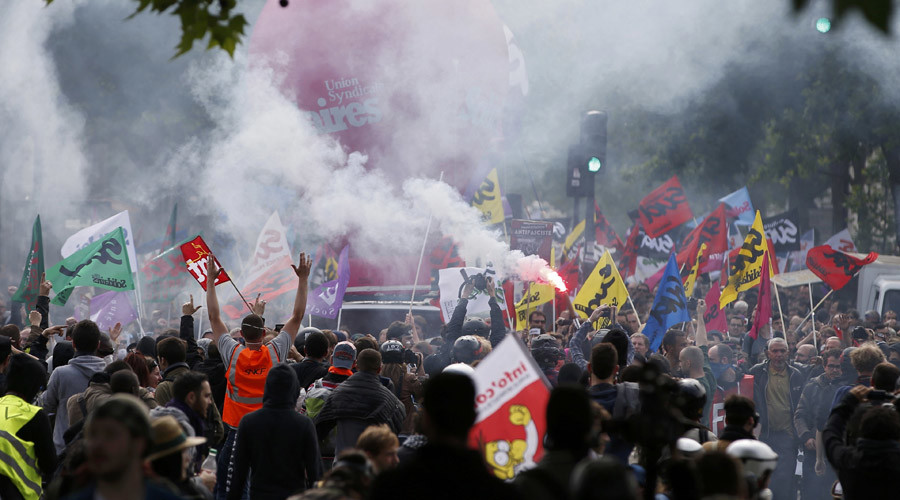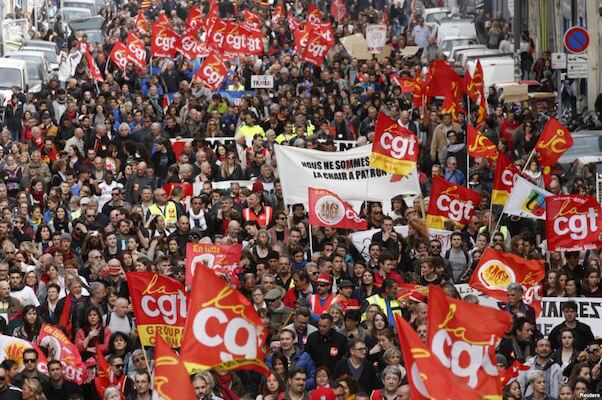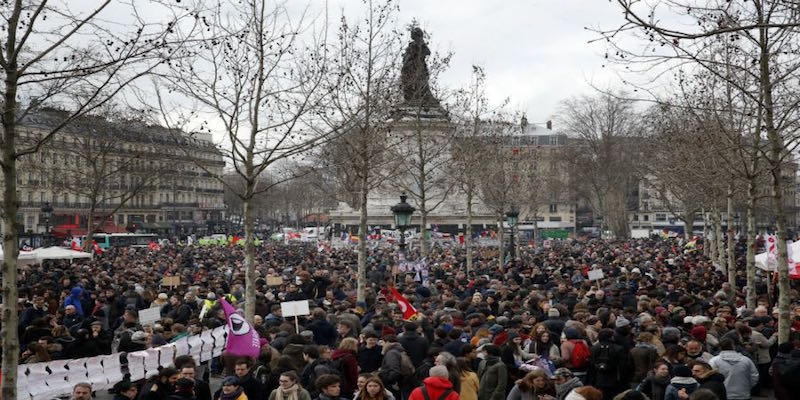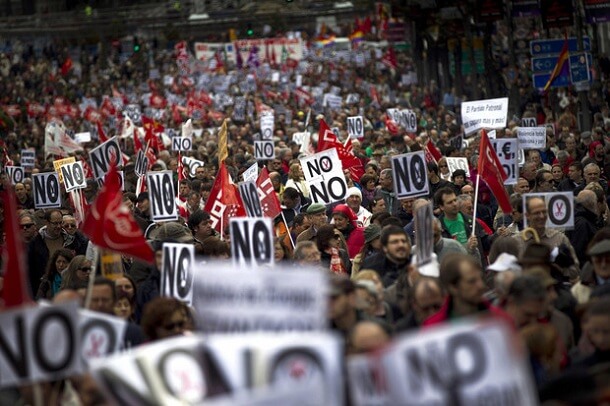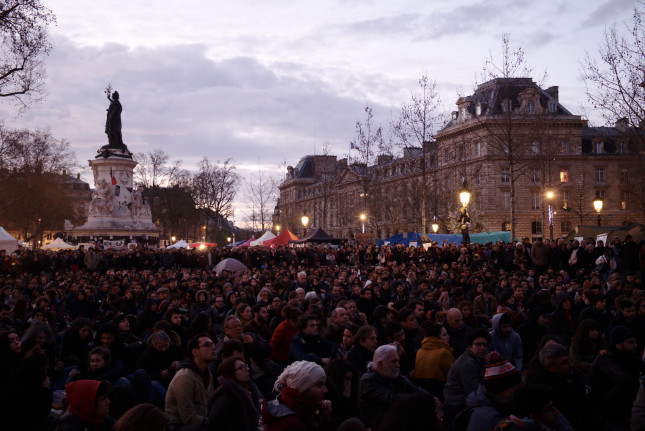By Mario Hernández / Source: Anred.org / The Dawn News
Guillermo Almeyra, international columnist of La Jornada (México), analyzes the situation in France regarding the widely-resisted labour reform that was approved by Presidential decree.
The widely criticized and resisted labour reform of François Hollande was approved last Tuesday by a Presidential decree. Given the lack of consensus on the bill, even amongst the ranks of the government, the Executive decided to use a Constitutional clause to pass it without voting for it.
Mario Hernández: I’d like to discuss the situation in France. The labour reform they are trying to implement has had a strong rejection in the polls, which show that over 70% of the people are against it; but most of all, on the streets. There has been an important mobilization of students and workers. What can you tell us about that?
Guillermo Almeyra: To begin with, today (4/27) there’s a general strike of railway workers that has created chaos in the country because it’s an urban mean of transport. Since the end of March there have been mobilizations that have gone through the night, confronting power and staying up all night, debating. There have been huge demonstration, of a million people, but also smaller ones, and they never stopped, there are still groups of people that gather in a public square, or thousands of peoples that march.
They not only reject the new law that allows the employers to freely take away work hours, work conditions and even indirect salaries, but they also discuss world economy, political perspectives. This is a minority, but an important minority, because it’s active and it has influences.
However, sadly this hasn’t yet reached the suburbs, which are home to the poorest and most marginalized sectors of the population, those who will be the most affected ones —particularly the children of migrants or people without identifications. These sectors weren’t able to take part in demonstrations, because their main concern is to go bed early to look for work in the morning, and see how to survive in the following days. They don’t have time to discuss the bill on the job they don’t have.
So, in the suburbs, the movement is supported by small sectors. For example, here in Marseilles, in the marginalized neighborhoods where there are many Arab immigrants, it’s supported by immigrant organizations, unions, Arab left-wing militants, and French left-wing militants, but they don’t have the support of the majority of the population. It is however supported by students, and, above all, the middle classes that are already feeling some degree of regression, because they have problems to sustain their way of life but they still have jobs and schools. Among this sector there is a great resistance because they are very critical towards the reactionary policies of a government whose Finance Minister has just founded a right-wing party.
M.H.: We’re speaking about an unemployment rate of 10,5%, that is twice as high amongst the youth. The leader of the socialist left, Gérard Filoche, said that the labour reform is the most important counter-revolution in a century in France.
G.A: Exactly. It’s a direct attack against the Constitution after the liberation of France and the end of Nazism and of a government where a communist where the Vice President was also a communist.
The overriding of the Constitution, of the workers’ rights, of the laws that ensured the stability of jobs is a most serious threat against retirements and that affects the structure of society, because women, since 1968 who conquered a place in the world of work and took an active role in political life, now are forced back into homes to fulfill their old role as caregivers for the old, the sick, the children. This policy by Hollande has caused a major social setback, with a government that is supposedly socialist. The next elections are going to result in a clear path for the right.
M.H.: Last weekend, Norbert Hofer, an anti-immigrant xenophobic, obtained in Austria 35% of the vote and is going to confront the Green Party in a second round. The government coalition of the socialists and christian democrats merely obtained around 10% each.
G.A. Precisely, because social democrats, following the social christians who were right-wing, promoted completely right-wing policies, so why would the people vote them when they can instead plainly vote for the right, which expresses their project more clearly? The right is less anti-worker but more anti-immigrant, racist, and chauvinist, but it’s not against Austrians. So, a sector of the Austrian working class, particularly the peasants that formerly voted for the Christians, but also a sector of the workers that used to vote for the socialists, now voted for the right, and the Green remained untouched. The Green Party are civilized liberals, not only ecologists, they are protective of social rights, but very moderate. My wish is that the Green win.
